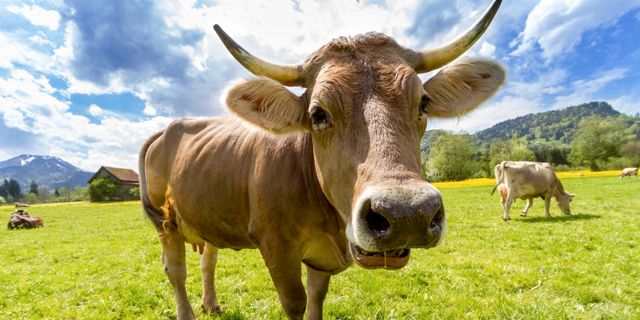Farms are an important part of America’s every day survival! To have safe and delicious food America’s agricultural operations rely on farmers to keep their livestock clean and healthy. If a farms livestock or vegetation become contaminated it will directly affect food supplies across the country.
Farmers have many issues to worry about protecting their farms from. One big issue is the threat of mosquito borne diseases contaminating livestock which will affect a farmer’s lively hood. There are many diseases that can be transmitted from mosquitoes to a farms livestock. Mosquitoes are not picky either; if you exhale carbon dioxide then you are a target. Cows, horses, pigs, goats, humans, and other warm-blooded creatures are all potential targets!
Threat of Disease in Farm Animals

When farm animals are constantly pestered by mosquitoes they will not feed like they should be to maintain their health. Cows and goats will most likely produce less milk and cattle, sheep, and poultry will experience weight loss. Horses can contract encephalitis and myxomytosis can be transmitted to rabbits all through contact with mosquitoes. Keep livestock indoors during peak activity hours when possible to prevent the possibility of them getting bit. Use animal safe repellents on horses and cattle when necessary. Avoid turning lights on in stables or barns during the evening hours and overnight. If a light is necessary use a yellow based light rather than a bright light that will attract the mosquitoes. Also screen in horse stalls if possible.
Clear out and Treat

Today’s farms consist of acres and acres of land that is covered in crops, machinery, buildings, and vehicles creating mini habitats throughout the property where mosquitoes can thrive and breed. Any standing water sources that last up to 4 days or longer and are larger than 2 tbsp. will be the perfect nursery for mosquito larvae. They thrive in ponds, ditches, fields, and containers. Old tires, clogged gutters, and pet food bowls can even host mosquito larvae long enough for them to mature into biting adult mosquitoes. You will want to remove as many of these sources from the farm as possible. Animal toughs and water dishes should be emptied and rinsed at least every 3-4 days. All other water sources that you are not able to remove should be treated with a larvacide. Mosquito Bits or Dunks are a great option for treating small water sources.
Large Scale Treatment

Many large farms will have one or more ponds, rivers, or other natural water sources throughout the property. Each large water source that does not flow constantly is an incubator for billions of mosquito larvae. However if the area is well populated with fish and insects that prey on mosquitoes they will help keep mosquito numbers down. Ponds and stagnant water sources can be treated with a larvacide to kill off any mosquito larvae that may be present and also to prevent mosquitoes from laying their eggs in that water.
Are Larvacides Allowed?
You will want to check with your local environmental authorities to make sure that you are allowed to treat the natural water sources on your farm. If treatment is not permitted a Mosquito Trap is another alternative. Placement of a mosquito trap will draw the mosquitoes away from a water source where livestock frequent. Draw, Trap, and Kill! That is how a mosquito trap works. They use an attractant to draw the mosquitoes to the unit, a vacuum sucks the mosquitoes up into a catch basin where they will dehydrate and die. The breeding cycle will then be interrupted being that the biting females are the ones that will be attracted to these types of units.
Proper Maintenance
Maintenance of the farm’s property can also help keep the mosquitoes at bay. Keep weeds and grass cut short so that natural predators are able to effectively hunt the mosquitoes. Ensure that cattails are thinned and old leaves are not piling up. If a stream is forming stagnant pools you will want to dig small trenches to connect the stream to a pool of water that may be treated. Do the same for ditches surrounding the farm that do not have culverts for draining. Maintain any farm irrigation systems regularly to ensure that they are working properly and not causing pooling water sources. Look for holes in tree trunks that will hold water and drill a hole in the bottom of the tree hole to allow drainage without damaging a potential bird or animal habitat. Last but not least keep up on road conditions because even the simplest pothole or rut can be a welcoming breeding ground for the mosquitoes seeing that there are no potential predators.
Follow all of these recommendations and steps for ridding your farm of the most annoying and potentially detrimental insect for livestock and workers alike. Happier animals will feed and grow properly and employees will work more effectively all without the risk of contracting a mosquito borne disease. All will ensure that your farm is thriving and is profitable!







